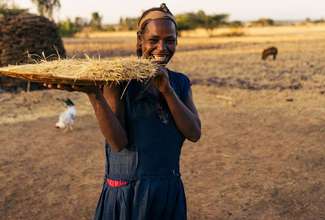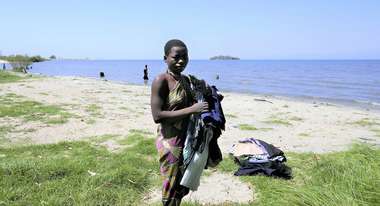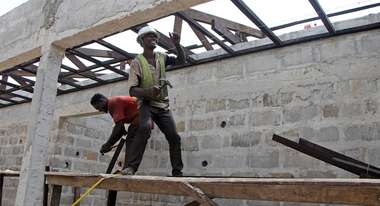Feeding people and protecting forests: agriculture in a changing climate
In Malawi, climate change threatens food security. Farming families are adapting their production methods and protecting the forest.
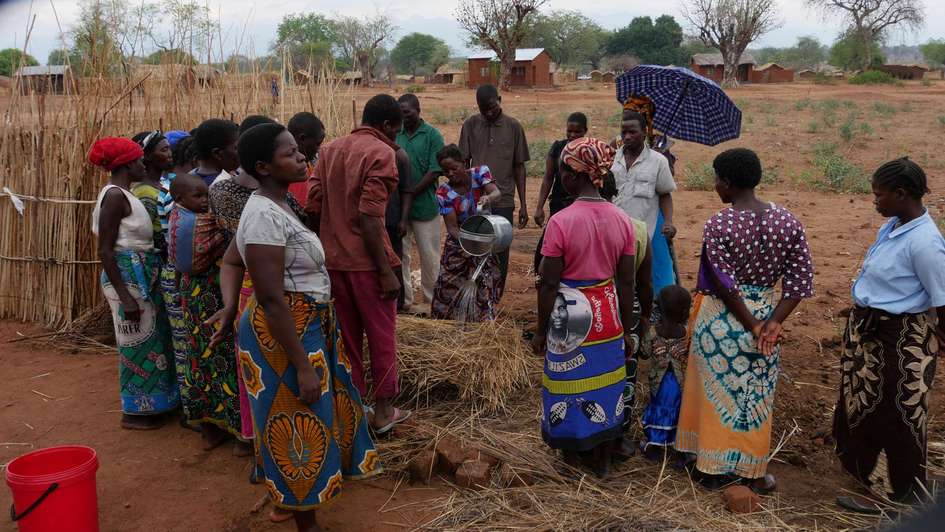
The numbers tell the story:
- If deforestation continues at its current rate, Malawi's forests will be gone in 40 years.
- 80% of respondents to a survey in Malawi said they could only eat twice a day due to food shortages.
These numbers describe a vicious circle in which climate change plays an important role. Drought and heavy rains threaten the harvests of smallholder farmers in southern Malawi. Most people depend on the produce they grow for their livelihood. Soil degradation due to monocultures has been a problem for some time. The consequences of climate change only add to this. To make matters worse, high inflation affects the region, along with fuel shortages and the economic impact of the war in Ukraine.
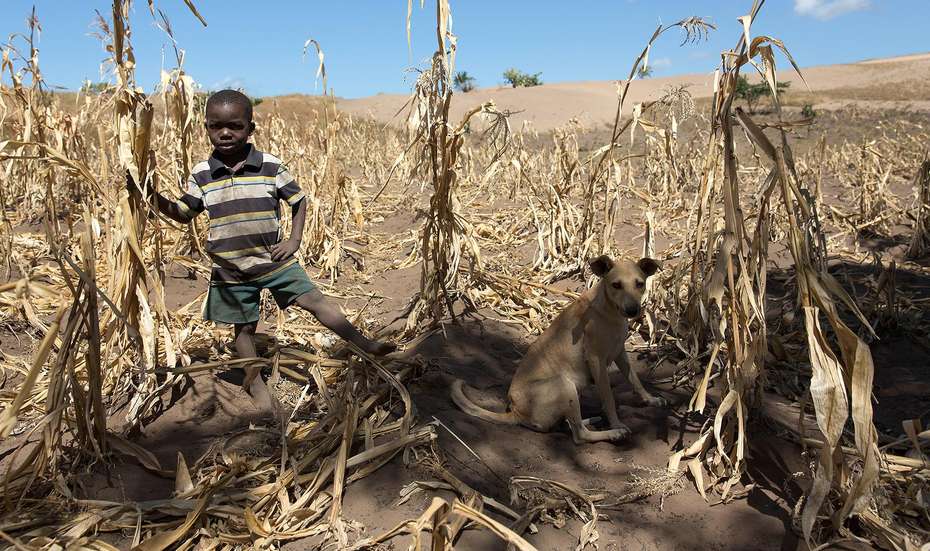
Hunger caused by climate change
Hunger has once again become a problem. As in most world regions, three meals a day was the norm in southern Malawi; today, for most people, it is only two – and in the months from December to April, when there is no harvest, many can even eat only once a day. The health consequences of malnutrition are particularly severe for children.
Faced with challenges, people will always look for solutions. The solution for many people in southern Malawi is found in the forest. Almost one-third of Malawi's national territory is covered by forest and bush vegetation. Economic development has sacrificed forest areas as land and raw material reserves. The country has established various national parks and protected areas to address deforestation.
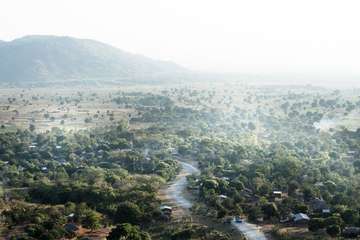
In the current food crisis, these protected areas are coming under pressure. Farmers are illegally clearing forest areas to gain additional arable land. Others produce charcoal from illegally felled trees for resale, as their families need a second source of income to survive.
But these are dangerous solutions. Forest clearing destroys biodiversity, adds momentum to climate change, and increases soil erosion. Without the water storage capacity of forests, for example, heavy rainfall will be more devasting to agricultural land.
Agriculture adapts to climate change
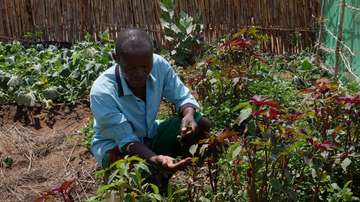
To break this cycle, Welthungerhilfe (WHH) and the Kusamala Institute of Agriculture and Ecology have launched a project to create new prospects for farmers and reverse forest damage. In 20 villages in the Mangochi district, the project supports family farmers in switching to sustainable production methods that are better adapted to climate change.
These include better water and harvest management and the cultivation of climate-tolerant crops. But a fundamental diversification of agricultural production is also one of the measures that can alleviate the food crisis: small animal husbandry and beekeeping make farmers less dependent on their crops, and growing a greater variety of crops counteracts soil degradation.
The second focus of the project is sustainable forest use. People can benefit from their forests without destroying them. The project provides information on the importance of the forest and on ways to harvest forest foods sustainably. At the same time, the project will plant 800,000 tree seedlings.
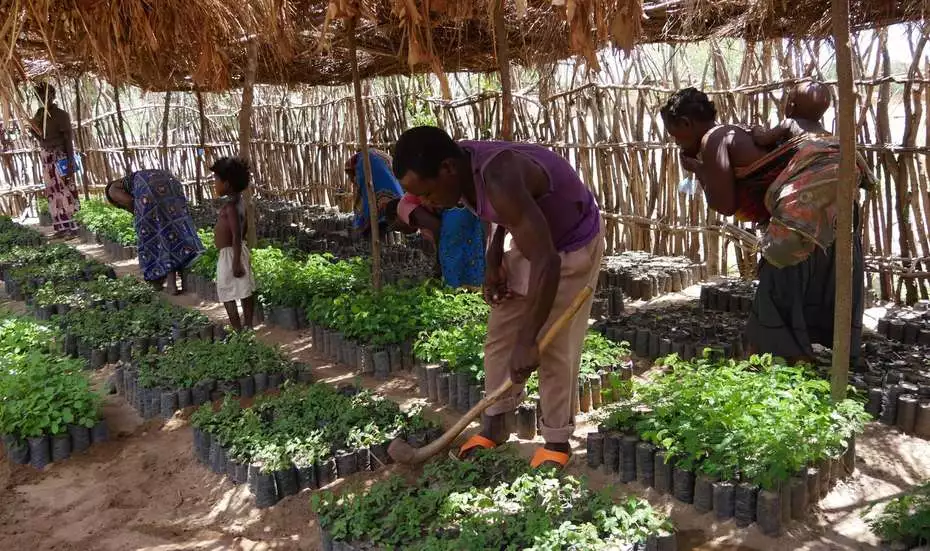
Ultimately, it's about resilience – the ability to resist and adapt. We must all learn to live with the volatile consequences of climate change while reducing our ecological footprint. In Malawi, the changes are already threatening the livelihoods of many people. The Kusamala Institute of Agriculture and Ecology, WHH's longstanding local partner, is developing concepts to adapt smallholder agriculture to changing ecological conditions.
Only if people have enough to eat today can they afford to worry about the future of their natural environment. And vice versa: Only if farmers adapt to the requirements of a changing environment can they produce enough to feed their families.
How WHH supports climate adaptation in Malawi
- We will plant 800,000 tree seedlings adjacent to the Phirilongwe Forest Reserve to safeguard tree cover and biodiversity.
- We will provide 2,400 households in 20 villages with seeds for climate-tolerant crops, seedlings for fruit trees, and agricultural equipment.
- We will train 300 farmers in sustainable agriculture, water and harvest management, forest conservation, and harvesting forest foods such as nuts and berries.
- We will provide 800 households with small animals and 1,200 beehives to broaden agricultural production.
- With our digital app "Zaulimi", we will support family farmers with information on crop prices, market, livestock, and farm loan equipment.
- We are establishing nutrition and hygiene clubs to make information on health and nutrition topics accessible.





